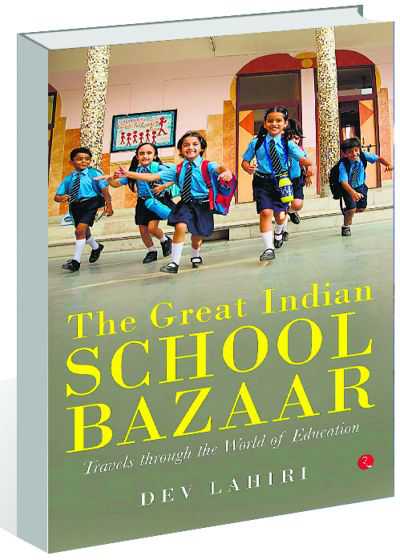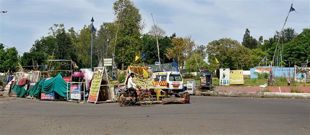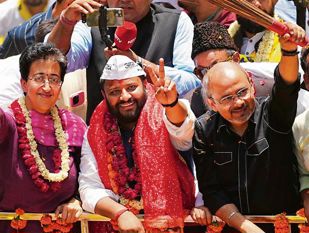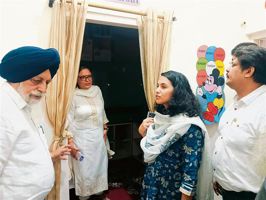
The Great Indian School Bazaar by Dev Lahiri. Rupa. Pages 147. Rs 195
Vijay Tankha
Educationist, marathon runner, equestrian, Dev Lahiri who had prepared this book before his untimely demise in August, was probably the only Rhodes scholar who turned to school teaching.
He taught for three decades, eventually becoming the principal of several well-known public schools. In this apparently brief but sweeping survey of the many ills of our educational system, Lahiri brings his experience to flag the many pitfalls of public school education in India.
Like others still running on life support, the educational system works only because it has to. This slows the urgency for remedial action at every level, though small success stories abound.
Unlike most public services, the school system is the bedrock of all others. Yet, as Lahiri reminds us, its familiar ills are only compounded, not addressed. From admission procedures to curriculum reform, from instruction of students to recruitment of teachers, Lahiri provides a synoptic account of different facets of the functioning (and non-functioning) of our public schools.
Using both anecdote and analysis, the author’s familiar conclusions are: we need to better fund and evaluate both the form and content of school education, not leaving it to sectarian political whims or the perceived demands of quotidian commerce. School education has, he notes, mostly become a form of certification for board exams, themselves necessary for the main drivers of education today: entrance tests for professional courses (engineering, medicine, management) and to practically every other employment opportunity. What is entirely lost is the real interest of the children being processed on its assembly line: seemingly designed to leech out their life blood, stifling if not killing their future as creatively thinking adults.
In a sense, everyone is a stake holder, management is the primary cause of educational ills, as it consists of those who have both the financial and political clout to set up and run schools (and colleges). Stringent laws making education a social rather than a commercial enterprise are, ironically, the cause of the malaise, preventing honest running of educational institutions. Those who own schools often have little interest in either education or social upliftment. This does not mean, the author avers, that education cannot be made financially viable, which it is, given the demand. But concurrently, there is lack of quality supply: who aspires now to become a school teacher, underpaid, overworked and given little social recognition?
“What are schools for? To bring up… right thinking young adults who will be productive, effective caring members of society. Parents, schools, teachers, principals, management, students… the local community have to see themselves as part of an organic whole and be involved in this effort.”
Lahiri’s book is full of small but significant steps that can be taken to improve the situation. And should be read by parents, teachers and specially by school students themselves.


























